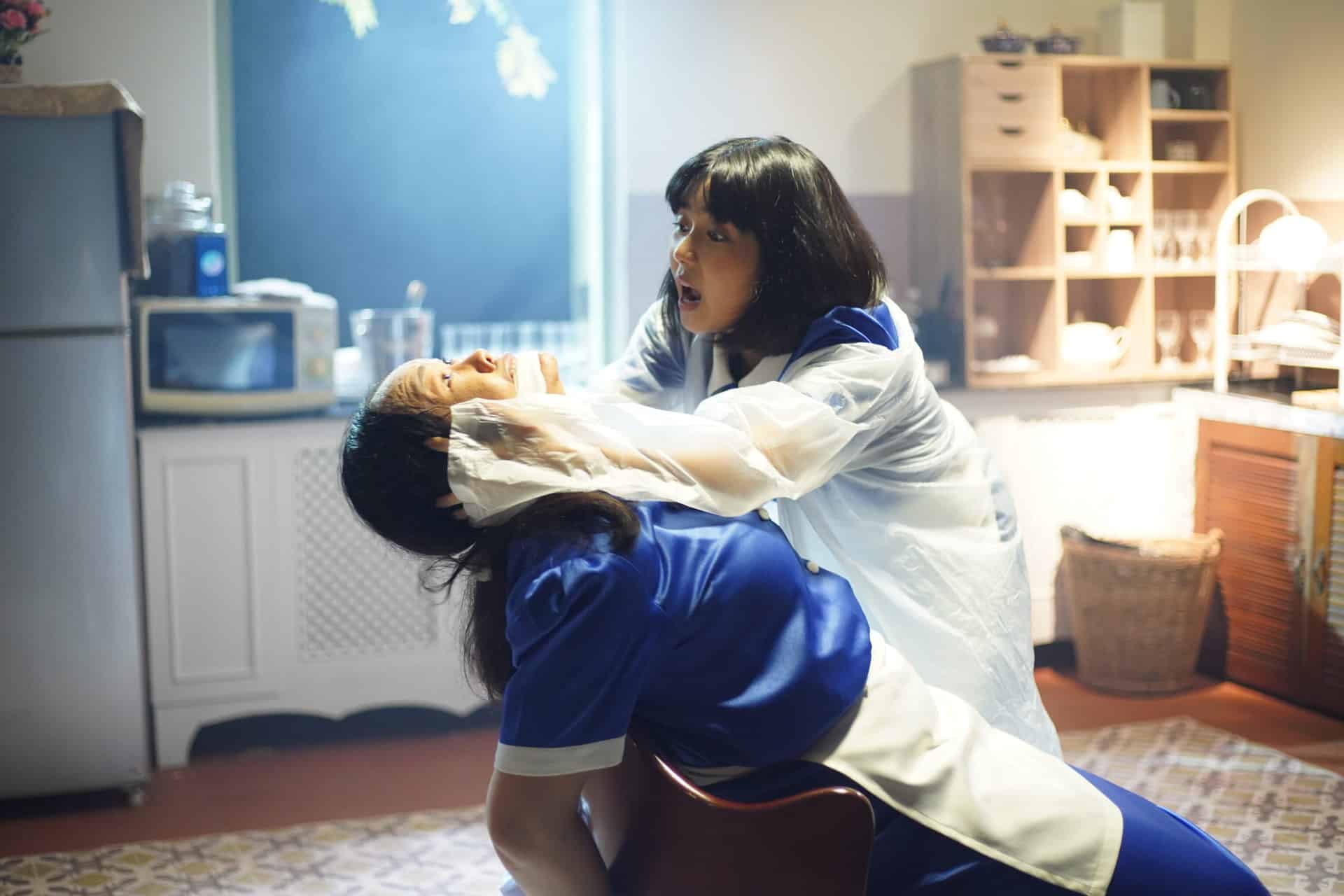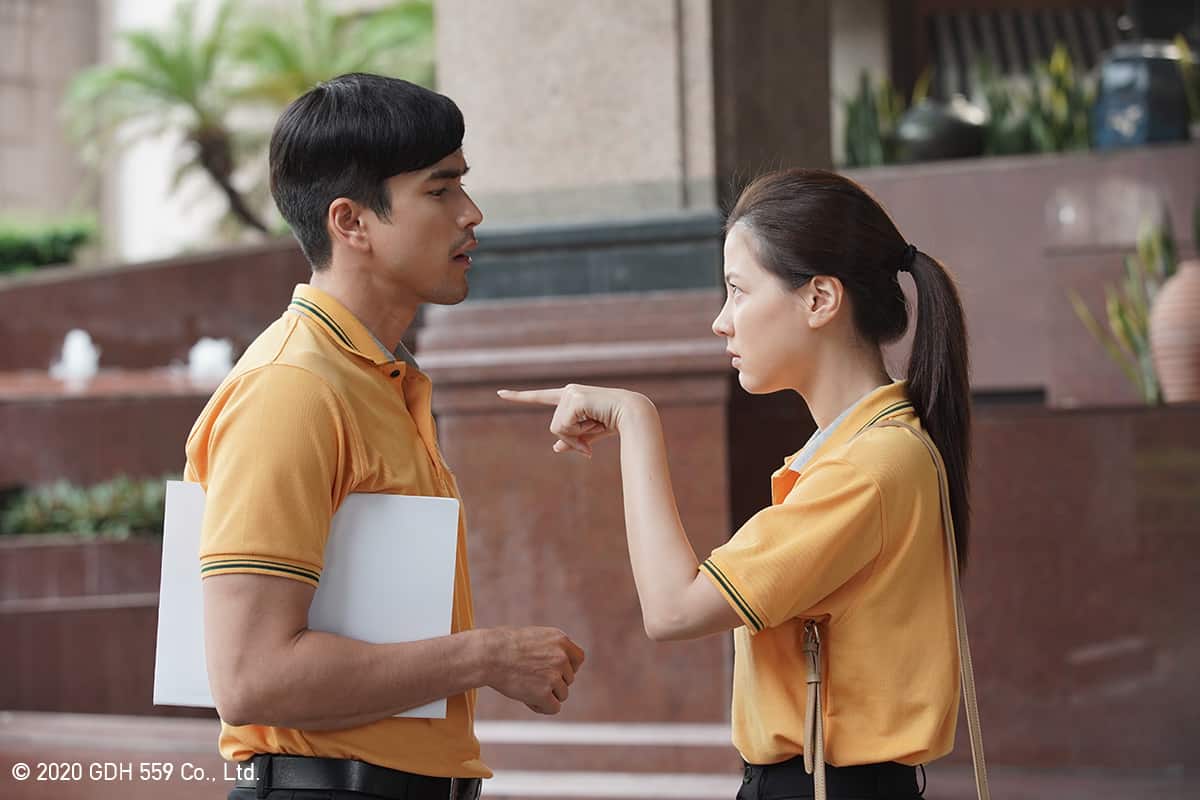Given the intensity and decisions which are usually associated with youth and growing up, it comes as no surprise that every culture has its own stories of initiation and experience to offer. The idea of the contrast between what one has expected of adult life and then, often years later, the reality of having a job, a family and/or a degree has set in with the almost stereotypical sets of clichés as well as resentments. However, with many ways of life being shaped by the concept of conformity or social standards, it is often quite difficult to divert from the norm, which is a subject Korean directors Lim Jisun and Lee Jae-jun chose for their debut feature “Kim-Min Young of the Report Card”. The movie, which won the Grand Prize at the Korean Competition at Jeonju International Film Festival, tells the story of a group of high-school students, their ways of life after graduation and how their friendship is shaped during that period of transition.
Kim Min-Young of the Report Card is screening at San Diego Asian Film Festival

At school, Jeong-hee (Kim Ju-a), Min-young (Lim Jong-min) and San-na (Yoon Seo-young) are best friends and are members of the “Three-line Poetry Club”. However, with graduation and the final tests approaching, the three of them decide to disband the club after one last session consisting of what they see are their best poems. While San-na mostly studies on her own, also focusing on doing an exchange year, Min-young and Jeong-hee spend time together, concentrating on their books and following a strict work routine. After the study entrance exam, the lives of the three girls go separate ways, with Jeong-hee not entirely sure what to do with her time, whereas her friends enroll at university with their only connection being through occasional online meetings.

After she has been through some part-time jobs, for example working at a tennis club where she felt unchallenged and was mostly bored, she decides to meet up with Min-young, who now lives in Seoul and has her brother's apartment to herself for the weekend. However, as soon as the two former friends meet again, Min-young receives an e-mail from one of her professors about her latest marks, which she is dissatisfied with. As her friends engage in a back-and-forth e-mail communication with her professor in an attempt to amend her result, Jeong-hee realizes their lives may be too different, and their friendship may have reached its end.
One of the key themes in “Kim Min-Young of the Report Card” is the idea of change and how it affects a friendship. Although this is mostly done through the two acts emphasizing the bond between the three girls before and after graduation, there are also the poems and their club, which they maintain even after they have moved away from their hometown. Starting with identity as the first subject, with Jeong-hee trying to define herself and her interests and later on the various exercises the girls engage in, which are supposed to make them creative but seem more like tedious exercises to them as the movie progresses. Directors Lee Jae-jun and Lim Jisun utilize devices such as these to establish the growing gap between the three main characters, how their worlds have grown apart from one another, as well as their outlooks on life.
At the heart of the story, there is the shifting chemistry between the three girls, highlighted through the performances of the main cast. Especially Kim Ju-a and Lim Jong-min excel in their roles of two friends trying to figure out what has created a bond between them in the first place and how that connection fits into their new life. The often minimalist set pieces, for example, the apartment in Seoul they meet again, or the somewhat tiresome aesthetics of the online meetings emphasize the idea of the friends growing apart from each other, with the actresses showing their character's feeling and thoughts in understated, yet quite sensitive gestures and expressions.
While the feature is quite well-done in terms of themes, acting as well as cinematography, there is the issue of progression. The combination of slow pacing and static shots, often highlighting similar or the same themes, is not very appealing and often appears quite redundant. While the idea of “unimaginative spaces” such as the tennis clubs or the shopping mall fits to the story of the feature, the repetition of these images is often a little too much, making you almost want to fast-forward the movie to get to the next scene.
In the end, “Kim-Min Young of the Report Card” is a solid drama about friendship, change and growing up. While there are some issues with its pacing, Lee Jae-jun and Lim Jisun's feature is worth a viewing for its cast and its use of minimalism to tell its story.















